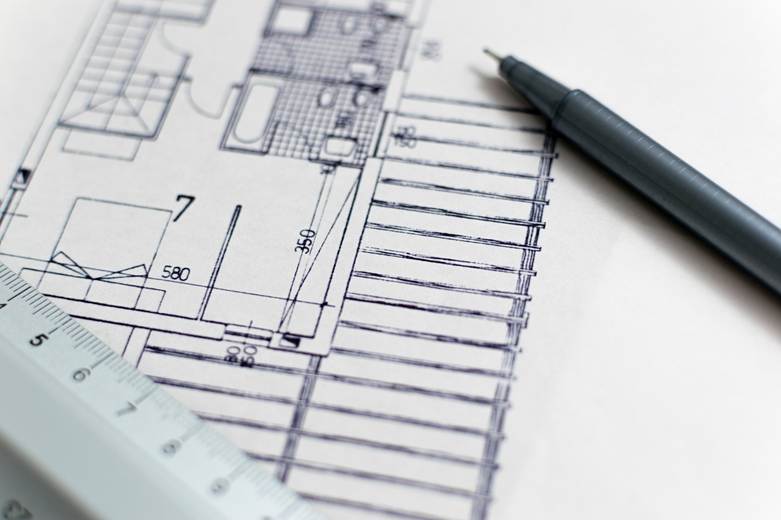Estate planning is a vital process that allows individuals to decide how their assets, particularly property, will be managed and distributed after their death. While it can be a difficult topic to confront, proper estate planning can save families from unnecessary stress, financial loss, and bitter disputes. Many people unknowingly make mistakes in their estate plans that pave the way for complicated property conflicts among heirs and beneficiaries. These disputes can fracture family relationships, cause lengthy legal battles, and diminish the value of the estate itself. In this post, we will explore some of the most common estate planning mistakes that frequently lead to such disputes, along with tips to avoid them, ensuring your wishes are honored and your loved ones are protected.

Image source: https://pixabay.com/photos/floor-plan-construction-building-1857175/
Failing to Create a Comprehensive Estate Plan
One of the biggest mistakes in estate planning is not having a plan at all or having one that is incomplete. Many assume that their assets will automatically transfer to their heirs without any formal documentation. Without a clear and legally valid estate plan, state laws, known as intestacy laws, will determine how your property is divided. These laws rarely reflect personal wishes and often lead to confusion and conflict among surviving family members. An incomplete plan that neglects key assets, such as property held in multiple states or jointly owned properties, can create complications. Taking the time to create a thorough estate plan that includes wills, trusts, powers of attorney, and healthcare directives is important to prevent future disputes.
Choosing the Wrong Executor or Trustee
Selecting the wrong executor or trustee can seriously complicate the estate administration process. This person is responsible for managing assets, paying debts, and distributing property according to your wishes. If they lack organizational skills, impartiality, or legal knowledge, delays and disputes may arise. Many people don’t realize how important it is to understand estate planning: Trust vs Will in WA when making this choice, as the responsibilities differ significantly depending on the document governing the estate. Choosing someone with a conflict of interest or poor communication skills can create tension among heirs and even lead to legal challenges. Careful consideration and clear instructions help prevent such issues.
Not Updating the Estate Plan Regularly
Estate plans should be dynamic documents that evolve alongside life’s changes. A common error is creating an estate plan once and never revisiting it. Life events such as marriage, divorce, births, deaths, or significant financial changes can drastically alter your wishes or the distribution of your estate. If an outdated will or trust is used, it can lead to ambiguity, contested claims, or the exclusion of intended beneficiaries. For example, failing to update a will after a divorce might inadvertently leave assets to an ex-spouse. Regularly reviewing and updating your estate plan with a qualified attorney ensures your documents remain current and enforceable.
Ignoring the Importance of Clear and Specific Language
Vague or ambiguous language in estate planning documents is a common trigger for disputes. If the instructions on how property should be distributed are unclear, heirs may interpret them differently, resulting in disagreements and legal challenges. For example, leaving property to “my children” without specifying shares or identifying beneficiaries by full names can lead to confusion, especially in blended families or if a beneficiary predeceases the testator. Using precise, unambiguous language and including detailed instructions can minimize misunderstandings. Working closely with an estate planning lawyer helps ensure the language conveys your intentions.
Overlooking the Use of Trusts to Manage Property
Trusts are powerful estate planning tools that can help avoid probate, minimize taxes, and provide clear instructions on property management and distribution. A mistake many make is relying solely on a simple will without considering trusts, especially when dealing with complex property arrangements or concerns about heirs’ abilities to manage assets. For example, if a beneficiary is a minor, has special needs, or struggles with financial responsibility, a trust can protect their inheritance and dictate how and when they receive it. Failure to use trusts when appropriate often results in probate court involvement and prolonged disputes over property management.
Disregarding Tax Implications and Financial Consequences
Estate planning mistakes often stem from not understanding or anticipating the tax consequences of property transfers. Without careful planning, estates can be subject to significant estate taxes, capital gains taxes, or gift taxes, reducing the value passed to heirs and possibly sparking disputes over who is responsible for paying them. Some property transfers may trigger unexpected tax bills if not properly structured. For example, real estate passed directly through a will may expose heirs to capital gains taxes upon sale. Incorporating tax-efficient strategies, such as establishing trusts or gifting property during your lifetime, can help minimize tax burdens and avoid conflict.
Failing to Communicate Your Estate Plan With Heirs
Even the most well-drafted estate plan can cause disputes if beneficiaries are left in the dark. A common error is not discussing the estate plan with heirs, which can lead to surprise, disappointment, and misunderstandings after the testator’s death. When people don’t understand why certain decisions were made or feel excluded, they are more likely to contest the will or create family strife. Open, honest communication about your estate planning decisions, while respecting privacy and sensitivity, can help set expectations and reduce the likelihood of contested claims and hurt feelings down the line.
Not Planning for Potential Contingencies
Life is unpredictable, and estate plans that do not account for potential contingencies can lead to complicated disputes. What happens if a beneficiary dies before the testator, refuses their inheritance, or becomes incapacitated? Without clear backup plans, property can end up in unintended hands or be stuck in legal limbo. Including contingent beneficiaries, alternate executors, and instructions for unforeseen circumstances ensures smoother transitions. Failure to plan for these “what-if” scenarios often results in costly litigation and delays in property distribution.

Image source: https://pixabay.com/photos/meeting-business-architect-office-2284501/
Estate planning is a critical step in securing your legacy and protecting your loved ones, but it is fraught with potential pitfalls that can lead to complicated property disputes. Avoiding common mistakes, such as failing to create a comprehensive plan, neglecting updates, using unclear language, overlooking trusts, disregarding taxes, failing to communicate, not planning for contingencies, and appointing the wrong executor, can save your family from unnecessary conflict and stress. Working with experienced estate planning professionals and maintaining open communication with your heirs will help ensure your property is distributed smoothly and according to your wishes. By investing time and thought into your estate plan today, you can prevent costly legal battles and preserve family harmony for years to come.









